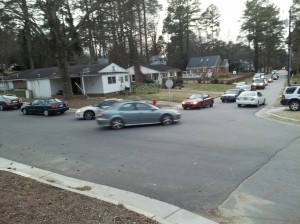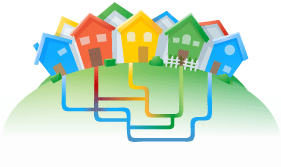Tuesday night, street crews began blocking off Glascock Street and side streets in preparation for a traffic calming and sewer line replacement project. Glascock’s traffic was detoured down the normally serene side street of Edmund, where traffic now roared down the 25MPH road. Understandably, the neighbors were livid with this gigantic disruption, especially in light of no notice being given to the community outside of the few neighbors who live on Glascock itself. Hopefully in the future, the city will choose to notify the neighbors on the detour street, too, as they get impacted just as strongly as those on the street getting the construction.
The whole mess got me thinking of what it might be like in the next few years when Google Fiber gets started here in earnest. Tuesday’s closure affected just one block whereas Google likely will be tearing things up everywhere. How will people react to this kind of disruption happening all over town?



